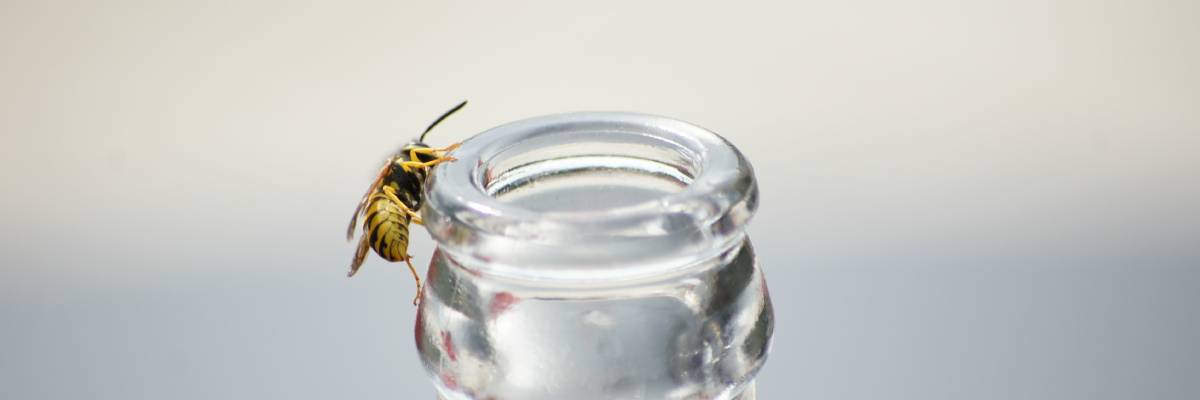When the weather warms up in springtime in Florida, it's glorious. Unfortunately, many insect pests start to emerge from their hiding places to take advantage of the favorable conditions. Here are some of the insect pests that tend to swarm in the spring and how you can avoid them:
Bees
Bees are essential pollinators and play a critical role in our ecosystem. However, they can be a nuisance if they start to swarm around your home or garden. Bees typically swarm in the spring to find a new home and establish a new colony.
To avoid bee swarms, make sure you keep your trash cans tightly sealed and clean up any food or drink spills immediately. Bees are attracted to sweet smells and flavors, so avoid wearing perfume or scented lotions if you are going to spend time outdoors. If you do encounter a swarm of bees, stay calm and avoid swatting at them, as this will only make them more agitated. Instead, slowly back away and seek shelter indoors.
Wasps
Wasps are another type of stinging insect that can swarm in the spring. They are attracted to sweet smells and are more aggressive than bees, so it's important to be cautious around them. Wasps build nests in protected areas such as under eaves, in trees, or in shrubs. If you spot a wasp nest on your property, it's best to call a professional to remove it, as attempting to do so yourself can be dangerous.
To avoid attracting wasps, keep your garbage cans sealed and pick up any fallen fruit from trees. Avoid wearing brightly colored clothing, as wasps are attracted to bright colors. If you do encounter a wasp swarm, avoid flailing your arms or running away, as this will only provoke them. Instead, calmly walk away and seek shelter indoors.
Mosquitoes
Mosquitoes are perhaps the most annoying insect pests that swarm in the spring. They are attracted to standing water, so make sure you don't have any puddles or containers of stagnant water on your property. Easier said than done in Florida's tropical climate. Mosquitoes can carry diseases such as West Nile virus and Zika virus, so it's important to take steps to avoid being bitten.
To avoid mosquito swarms, wear long sleeves and pants when spending time outdoors, and use insect repellent containing DEET. Mosquitoes are most active at dawn and dusk, so avoid spending time outside during these times if possible. Keep your windows and doors screened to prevent mosquitoes from entering your home.
Termites
Termite swarming occurs when a group of reproductive termites leave their existing colony to start a new one. This usually happens when the weather is warm and humid, which is why it typically occurs in the spring or early summer. During a swarm, hundreds or even thousands of winged termites take flight, looking for a suitable mate and a location to start a new colony.
Insect pests that swarm in the spring can be a nuisance and even a danger in some cases. By taking the necessary precautions, you can avoid attracting these pests to your home and garden, and protect yourself from their bites and stings. If you do experience insects swarming on your property, we can help.
Trusted Florida Exterminators
If you're experiencing swarms of insects on your property this spring, it can keep you from using your outdoor space or even be a threat to your health.
We've been exterminating pests in Central, West Central, and Southwest Florida since 1958. Contact us today for a free quote. 



